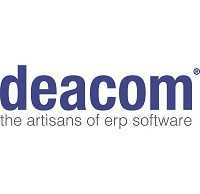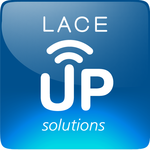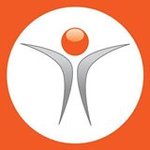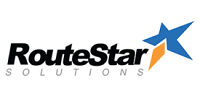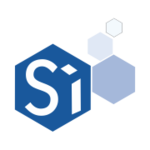What Is Direct Store Delivery Software?
Direct Store Delivery (DSD) software is a technology solution that streamlines and automates the process of delivering items from a manufacturer or distributor to retail retailers. This software allows organizations to gain more control over their delivery operations, increasing productivity and, ultimately, improving the customer experience. At its core, DSD software serves as a central center for overseeing all parts of direct store delivery, including as order processing, inventory management, invoicing, and routing.
This enables firms to optimize their operations and save time and effort managing the delivery process manually. One of the primary benefits of adopting DSD software is having real-time visibility over inventory levels. With this solution, firms may track stock levels at the store level, allowing for faster restocking and preventing supply shortages.
This guarantees that retailers always have the proper products in stock, which leads to higher customer satisfaction and sales. Furthermore, DSD software allows organizations to monitor and analyze delivery data such as delivery times, routes, and order correctness. This information can be utilized to discover inefficiencies and enhance operations, resulting in higher cost savings and improved performance.
Another important aspect of DSD software is its ability to interact with other systems, such as accounting and warehouse management software. This interface ensures a continuous flow of data and eliminates the need for manual data entry, lowering the risk of errors and saving time. Investing in a DSD software solution can provide various benefits to organizations, such as increased efficiency, better inventory control, and more customer satisfaction. DSD software, with its rich features and capabilities, is a must-have tool for every firm that uses direct store delivery.
What Are The Recent Trends In Direct Store Delivery Software?
Direct Store Delivery (DSD) software is a crucial tool for retailers and distributors. It streamlines the delivery process from producer to store, improving efficiency and lowering costs. As technology advances, so does DSD software. Buyers should be aware of the following recent trends in DSD software:
1. Cloud-Based Solutions: One of the most recent trends in DSD software is the transition to cloud-based solutions. This makes it easy to access data and receive real-time updates from anywhere. With the advent of remote work and the demand for flexibility, cloud-based DSD software allows employees to operate from any location, enhancing productivity and lowering reliance on physical servers.
2. Integration With Mobile Devices: In today's fast-paced corporate climate, having real-time data is critical. To keep ahead of the competition, several DSD software vendors are also providing apps that work with mobile devices. This enables delivery drivers to receive and submit orders while on the way, increasing efficiency and communication with back-office staff.
3. Artificial Intelligence (AI) And Machine Learning: AI and machine learning are entering the DSD software market to provide sophisticated forecasting and predictive analytics capabilities. This technology enables organizations to optimize inventory levels, prepare for demand, and decrease waste, thus increasing the bottom line.
4. GPS Tracking: Another common feature in DSD software is GPS tracking. This tool enables businesses to track their delivery routes in real time, resulting in more precise delivery times and increased customer satisfaction. It also helps businesses find opportunities for improvement in their delivery process, resulting in enhanced efficiency.
5. Real-Time Inventory Management: DSD software has grown to include real-time inventory management tools, which provide users with correct inventory levels while lowering the risk of stockouts. Businesses can use real-time data to ensure that their products are constantly in stock, preventing missed sales opportunities and unsatisfied customers.
Benefits Of Using Direct Store Delivery Software
Direct Store Delivery (DSD) software has become an indispensable tool for organizations, particularly in the fast-paced retail sector. This program has a number of advantages for businesses that rely on direct store delivery, including food and beverage manufacturers, wholesalers, and retailers. In this buyer's guide, we'll look at the primary advantages of adopting direct store delivery software.
1. Improved Inventory Management: Direct store delivery software enables firms to track and manage their inventory in real time. This allows them to gain a better grasp of their inventory, sales patterns, and demand trends. As a result, firms can minimize stockouts, eliminate overstocking, and enhance overall inventory management.
2. Streamlined Order Fulfillment: Direct store delivery software simplifies order fulfillment, from receiving orders to delivering goods to the customer's door. The software completely automates the process, removing the need for manual data entry, paper-based ordering, and time-consuming paperwork. This eliminates the possibility of human error, increases order accuracy, and expedites the order fulfillment process.
3. Improved Route Planning And Optimization: Direct store delivery software includes route optimization capabilities, which allow firms to plan and optimize delivery routes. This reduces gasoline expenses, shortens delivery times, and increases the number of deliveries per route. Businesses may also track their delivery drivers' locations in real time, ensuring that deliveries are punctual and efficient.
4. Improved Visibility And Traceability: DSD software provides organizations with accurate and real-time data, allowing them to better monitor and trace their commodities. From order status to delivery confirmation, these software solutions provide complete visibility, allowing businesses to track their items and assure timely delivery of commodities.
5. Increased Customer Satisfaction: Improved inventory management, order fulfillment, and visibility allow firms to fulfill orders more quickly and precisely, resulting in higher customer happiness. This promotes repeat business, positive word-of-mouth, and long-term consumer retention.
Important Factors To Consider While Purchasing Direct Store Delivery Software?
Direct retail Delivery (DSD) software is an essential tool for organizations who conduct direct retail delivery operations. This program optimizes the entire process of delivering goods directly to retail establishments, including order administration, inventory tracking, and delivery scheduling. However, with so many options on the market, it can be difficult for businesses to find the best DSD software for their specific requirements.
To assist you make an informed decision, we've created a list of the most crucial considerations when selecting DSD software.
1. Functionality: The software's functionality should be the first and most important consideration. It should include all of the tools you need to run DSD operations, such as order management, inventory tracking, route optimization, and delivery scheduling. Make sure to determine your individual needs and buy software that can meet them successfully.
2. Integration: DSD operations require several procedures, including order administration, inventory management, and delivery tracking. To eliminate data conflicts, use software that interfaces effortlessly with your existing systems and software.
3. Usability: The program should have a basic and straightforward interface that your personnel can readily explore. Complicated software can result in a lengthier learning curve, disrupting your operations.
4. Scalability: As your company grows, your DSD operations will expand. It is critical to select software that can grow with your organization without requiring regular upgrades or adjustments. This ensures long-term cost effectiveness and efficiency.
5. Mobile Capabilities: With the proliferation of mobile devices, having DSD software that has mobile capabilities can be extremely beneficial to your business. It enables your delivery people to access and update information on the go, giving you real-time visibility into your operations.
6. Data Security: DSD software handles sensitive information, such as customer and financial data. To safeguard your data from cyber attacks, you must guarantee that the program includes strict security measures, such as data encryption.
7. Customer Support: DSD software, like all other software, may experience technical faults or glitches. It is critical to select a software vendor that provides thorough customer assistance in order to address any concerns swiftly.
8. Cost: DSD software is available in a range of pricing choices, including one-time purchases, monthly subscriptions, and per-user payments. Before making a decision, you should examine your budget as well as the software's long-term worth in terms of cost savings and efficiency.
9. Industry-Specific Functionality: Some DSD software may have industry-specific functionality tailored to your specific requirements. For example, if you work in the food and beverage industry, seek for software that has capabilities such as FDA compliance or food tracking.
10. Reviews And recommendations: Before making a final selection, read reviews and obtain recommendations from other businesses in your field who have used the program. This will provide information about the software's effectiveness and client satisfaction.
What Are The Key Features To Look For In Direct Store Delivery Software?
When it comes to selecting the best Direct Store Delivery (DSD) software for your business, there are several crucial things to look for. These features can significantly improve your company's efficiency, profitability, and customer satisfaction. In this buyer's guide, we'll go over the most important characteristics to consider while choosing DSD software.
1. Mobile Functionality: One of the most important aspects of DSD software is its ability to operate on mobile devices like as smartphones and tablets. This tool enables your delivery drivers to view and update critical information on the field, such as order and inventory data. Mobile feature allows your drivers to take electronic signatures, issue invoices, and track delivery routes in real time.
2. Order Management: Effective order management is critical to a smooth delivery procedure. Look for DSD software that allows orders to be taken, processed, and tracked in real time, resulting in timely and precise deliveries. This functionality should also allow you to alter orders while on the move, handle returns and refunds, and manage customer credit limits.
3. Inventory Management: Managing inventory levels is critical for organizations that provide direct store delivery. Your DSD software should have strong inventory management features, such as real-time tracking of item amounts, barcode scanning, and automatic reordering when stock levels fall below a certain threshold. This feature ensures that your clients always have access to the products they require, resulting in fewer lost sales opportunities.
4. Route Optimization: One of the most significant advantages of using DSD software is its capacity to improve delivery routes. Look for software that includes route planning and optimization functions to assist your drivers in selecting the most efficient and cost-effective routes. This innovation has the potential to cut gasoline costs, enhance daily delivery volume, and ultimately improve customer happiness.
5. Integration With Accounting Systems: Your DSD software should function in tandem with your accounting system to reduce human labor and errors. This functionality enables for more efficient invoicing, payment processing, and financial reporting. It also guarantees that your financial records are correct and up to date, providing a comprehensive picture of your company's financial situation.
6. Analytics And Reporting: In today's business context, data is a significant asset, thus DSD software should include robust analytics and reporting capabilities. Detailed information on sales, inventory, client orders, and delivery performance will assist you in making educated business decisions, identifying areas for improvement, and tracking operational success.
Why Do Businesses Need Direct Store Delivery Software?
Many retail and manufacturing enterprises rely on direct store delivery (DSD). It entails the direct delivery of products from a supplier or manufacturer to a merchant or store, skipping typical distribution routes. However, without the proper tools and technology, managing DSD operations can be difficult and time-consuming. Here is when Direct Store Delivery Software comes into play.
One of the primary reasons firms want DSD software is to streamline and automate their DSD processes. Manual processes pose a significant risk of errors and delays, which can lead to lost sales and disgruntled consumers. DSD software automates order processing, invoicing, and inventory management, lowering the likelihood of human mistake and enhancing productivity.
Furthermore, DSD software offers real-time data and analytics, enabling businesses to make informed decisions based on reliable information. This data includes sales, inventory levels, and customer feedback, which may be utilized to spot patterns, optimize inventory levels, and boost customer happiness. Another significant advantage of DSD software is its interaction with accounting and ERP systems.
This guarantees that all data is synchronized and eliminates the need for manual data entry, saving time and lowering the likelihood of errors. DSD software also includes route planning and optimization tools, which can help organizations cut transportation costs and enhance delivery efficiency. It also enables easy tracking of delivery status, offering transparency to both businesses and customers.
Customer relationship management (CRM) is another important feature of DSD software. Businesses can use a centralized database to track customer orders, preferences, and purchasing history, allowing them to give personalized and targeted promotions while improving overall consumer happiness.
How Much Time Is Required To Implement Direct Store Delivery Software?
Implementing Direct Store Delivery (DSD) software might take time based on a number of factors, including the size of your company, the complexity of your processes, and the specific features and customization required. On average, the implementation process takes three to six months. However, this timeframe can be shortened with the assistance of competent and efficient software vendors.
The first stage in adopting DSD software is for the provider to examine and comprehend your business procedures and needs. This may include site inspections, interviews with important stakeholders, and data collection. This initial phase can last anywhere from two to four weeks. Next, the software vendor will customize the system to meet your specific requirements and integrate data with your existing systems, such as inventory management and accounting.
This stage normally takes between 4 and 6 weeks. Once the system has been configured, testing and training will take place. This is an important step to ensuring that the software works properly and that your team is prepared to use it efficiently. Training can take between two and four weeks, depending on the software's complexity and the number of users.
Following testing and training, the program will be ready for deployment. This is when the system is implemented throughout your organization and used in real-world settings. The deployment procedure can take anywhere between 4 and 8 weeks, depending on the size of your company and the number of sites. Overall, the typical time to implement DSD software is 3 to 6 months.
However, the timescale might be modified depending on your individual company requirements and the level of support and help supplied by the software vendor. It is critical to collaborate closely with your provider to guarantee a smooth and timely implementation.
What Is The Level Of Customization Available In Direct Store Delivery Software?
Direct Store Delivery software allows for various levels of customisation to meet the demands and preferences of different businesses. The level of customisation offered is determined by the software provider's features. In general, most Direct Store Delivery software solutions allow for the customization of a few important features. Order and route management is one feature that can be adjusted.
This includes the ability to design custom delivery routes, specify delivery time periods, and manage orders based on changing customer needs. This level of personalization enables firms to improve delivery operations and increase productivity. Inventory management is another customizable feature. Direct Store Delivery software enables businesses to track their inventory in real time, and some systems allow you to establish custom notifications for low stock levels or expired products.
This enables organizations to track their inventories and improve their supply chain management. Businesses can also tailor their product catalog and price with the Direct Store Delivery software. This includes developing and categorizing product categories, adding product descriptions and images, and adjusting prices for different client segments.
This level of personalization allows firms to adjust their offers to individual customer demands and preferences. In addition to these major features, Direct Store Delivery software provides customizable possibilities for reporting and analytics. This enables firms to create customized reports that provide information on sales, inventory, and delivery performance.
Customized reports help firms make data-driven decisions and optimize their operations. Overall, the level of flexibility available in Direct Store Delivery software enables firms to adjust it to their individual requirements and operations.
It eventually helps firms optimize their delivery operations, increase productivity, and boost customer happiness. As a result, it is critical for organizations to properly examine the level of customisation provided by various software suppliers before selecting the one that best meets their company requirements.
Which Industries Can Benefit The Most From Direct Store Delivery Software?
Direct Store distribution (DSD) Software is an effective solution that automates the distribution process from manufacturer to store, removing the need for a third-party distributor. This not only saves money, but also enhances the efficiency and accuracy of order processing. The benefits of DSD Software are numerous and can be observed in a variety of industries. In this buyer's guide, we'll go over which sectors can profit the most from this software.
1. Food And Beverage Industry: DSD Software is a game changer for food and beverage firms. Businesses can grow their reach and revenue by effortlessly delivering their items straight to merchants. DSD Software also assures that the freshest supplies are supplied, lowering the likelihood of spoilage and waste.
2. Consumer Packaged Goods Market: The consumer packaged goods (CPG) market is extremely competitive, thus having control over the delivery process is critical. DSD Software automates the process, ensuring that retailers receive their products on time and in the correct quantity. This allows CPG businesses to address client expectations while maintaining a strong market presence.
3. Pharmaceutical Sector: The pharmaceutical sector is extensively regulated, therefore tracking medicine distribution is crucial. DSD Software enables real-time visibility into the distribution process, ensuring that all pharmaceuticals arrive at their intended location on schedule and in proper condition. This not only helps to protect the medication's integrity, but it also guarantees that it meets regulatory standards.
4. Retail Business: Direct store delivery is a popular practice in the retail business, and DSD Software improves efficiency and cost-effectiveness. With the ability to track inventory levels and monitor deliveries in real time, merchants can maintain ideal stock levels while improving customer experience.
5. Wholesale Distribution Industry: DSD Software is a useful tool for wholesalers since it eliminates the need for manual order processing and enables proper inventory management. This leads to speedier delivery times, fewer errors, and higher customer satisfaction. 6. Bakery Industry - Freshness is essential for bakery operations. DSD Software enables direct distribution from the bakery to retail outlets, guaranteeing that items are supplied at optimal freshness. This leads to happier customers and improved revenue.
Conclusion
To summarize, selecting the correct direct store delivery software is critical for optimizing supply chain operations, increasing efficiency, and ultimately increasing revenues. With so many options on the market, it is critical to carefully assess your individual company requirements before making a decision. This includes considerations such as functionality, scalability, and pricing.
In this buyer's guide, we looked at some of the best DSD software solutions, each with their own set of features and benefits. Whether you are a small firm searching for a simple solution or a huge corporation requiring complex features, DSD software can satisfy your demands. Consider starting with a free trial or demo to get a feel for the product and determine whether it is a suitable fit for your needs.
Also, consider the importance of customer support and training while making your decision to ensure a seamless implementation and long-term success with software. Remember, investing in excellent DSD software can significantly improve your supply chain procedures, resulting in a more successful and lucrative firm. We hope this buyer's guide provided useful information and assisted you in selecting the finest DSD software for your firm.


